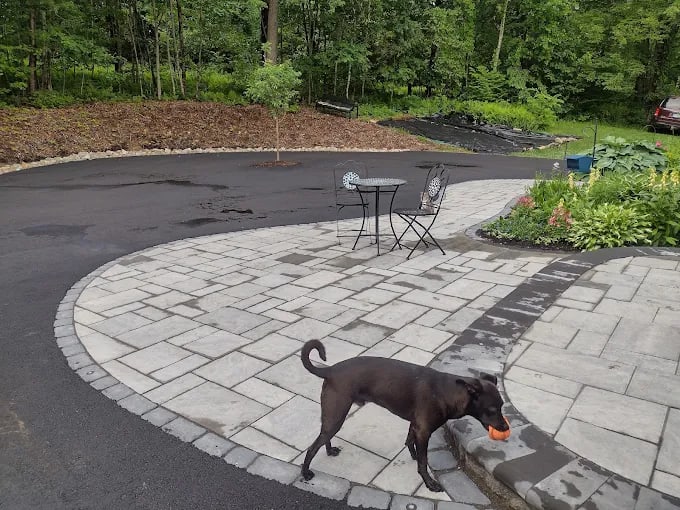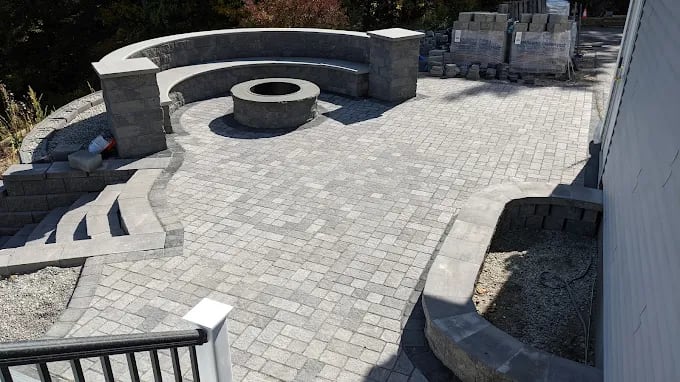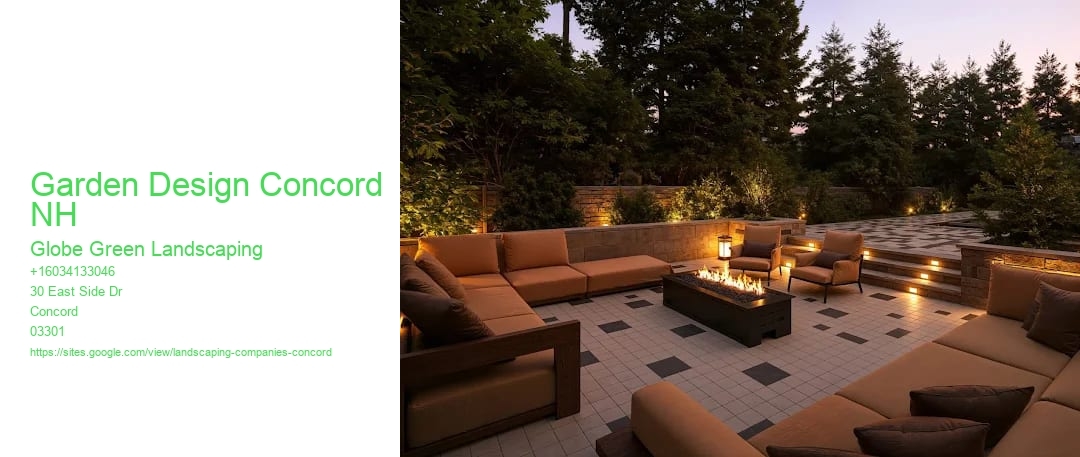Sustainable Garden Solutions for Concords Climate
Creating sustainable garden solutions for Concord, New Hampshire, requires a nuanced understanding of the local climate and its unique challenges. Concord Paver Installation Experts . Nestled in the northern reaches of the United States, Concord experiences a humid continental climate characterized by cold, snowy winters and warm, humid summers. This climate presents both opportunities and obstacles for gardeners seeking to design sustainable outdoor spaces that are both beautiful and environmentally responsible.
One of the foremost considerations in sustainable garden design for Concord is the selection of native plants. Native species are well-adapted to the local climate and soil conditions, making them more resilient to the regions temperature fluctuations and precipitation patterns. Incorporating plants such as Eastern Redbud, New England Aster, and Northern Bayberry not only enhances the gardens ecological balance but also reduces the need for excessive watering and chemical fertilizers, thereby minimizing the gardens environmental footprint.
Water conservation is another critical aspect of sustainable gardening in Concord. With the potential for both summer droughts and winter snowmelt, efficient water management is essential. Implementing rainwater harvesting systems, such as rain barrels, can capture and store water for drier periods, reducing reliance on municipal water supplies. Additionally, utilizing drip irrigation systems instead of traditional sprinklers can significantly reduce water waste by delivering moisture directly to the plant roots.
Soil health is paramount in creating a sustainable garden. Encouraging the development of healthy, nutrient-rich soil through composting and the use of organic fertilizers can greatly enhance plant growth while reducing the need for synthetic inputs. Composting kitchen scraps and garden waste not only diverts organic material from landfills but also enriches the soil with vital nutrients, promoting robust plant health and resilience against pests and diseases.
Furthermore, designing gardens with biodiversity in mind supports local wildlife, including pollinators such as bees and butterflies. Establishing pollinator-friendly habitats with a variety of flowering plants that bloom at different times of the year ensures a continuous supply of nectar and pollen. This strategy not only aids in the preservation of essential pollinator populations but also enriches the gardens aesthetic with a vibrant tapestry of colors and textures.
Lastly, integrating sustainable practices such as mulching and permaculture principles can further enhance garden resilience and productivity. Mulching helps retain soil moisture, suppress weeds, and regulate soil temperature, while permaculture design focuses on creating a self-sustaining ecosystem that mimics natural processes. By strategically placing plants and other garden elements in mutually beneficial arrangements, permaculture can reduce maintenance needs and improve overall garden health.

In conclusion, designing a sustainable garden in Concord, NH, involves a comprehensive approach that considers local climate conditions, promotes ecological balance, and fosters resource conservation. By embracing native plants, efficient water use, soil health, biodiversity, and sustainable practices, gardeners can create thriving outdoor spaces that are not only beautiful and functional but also contribute positively to the environment. Through thoughtful design and stewardship, Concords gardens can become shining examples of sustainability, resilience, and natural harmony.
Seasonal Planting Guide for Concord NH Gardens
Creating a seasonal planting guide for Concord, NH gardens is an essential endeavor for both novice and experienced gardeners. Concord's climate, characterized by its cold winters and warm summers, requires careful planning to ensure a thriving garden throughout the year. Understanding the local conditions and planting schedules can make all the difference in achieving a landscape that is both beautiful and productive.
In Concord, NH, the growing season is relatively short, typically from late May to early October. This period necessitates strategic planning to maximize the potential of your garden. Spring, especially, is a crucial time for planting. As the frost recedes and the soil begins to warm, gardeners can begin sowing seeds of cold-tolerant vegetables such as peas, lettuce, and spinach. These early crops can withstand the unpredictable early spring temperatures and will provide fresh produce as the season progresses.
As the threat of frost passes, usually around Memorial Day, a wider variety of plants can be introduced. This includes warm-season vegetables like tomatoes, peppers, and squash, which thrive in the increased heat and sunlight of summer. Additionally, flowers such as marigolds, zinnias, and sunflowers can be planted to add vibrant color to the garden, attracting pollinators that are crucial for a healthy ecosystem.

Summer in Concord brings its own set of challenges, particularly the need for consistent watering due to occasional dry spells. Mulching around plants can help retain moisture and suppress weeds, making maintenance more manageable. Furthermore, summer is an ideal time to plan for fall crops. Vegetables like broccoli, carrots, and kale can be sown in midsummer to ensure a bountiful harvest before the first frost arrives in autumn.
As fall approaches, the focus shifts to preparation for the coming winter. Cold-hardy plants like garlic and some varieties of onions can be planted in late fall to overwinter and emerge in spring. Additionally, this is the time to clean up the garden, removing any dead plants and debris to prevent pests and diseases from overwintering. Composting these materials can provide valuable nutrients for the next planting season.
Incorporating native plants into garden design is another essential aspect of gardening in Concord. Native species are well-adapted to local climate conditions and require less maintenance, which can be particularly beneficial for gardeners looking to create a sustainable landscape. Plants like the New England aster or the cardinal flower not only enhance the gardens beauty but also support local wildlife, including important pollinators like bees and butterflies.
Creating a seasonal planting guide for Concord gardens involves understanding the timing and needs of different plants, as well as the challenges posed by the local climate. By carefully planning and selecting appropriate plant varieties, gardeners can enjoy a lush, productive garden that thrives throughout the growing season and beyond. Whether youre aiming for a bountiful vegetable harvest or a picturesque floral display, a well-thought-out planting strategy is the key to success in Concord's unique environment.

Maximizing Small Spaces: Urban Garden Design in Concord
Maximizing small spaces for urban garden design in Concord, NH, presents an exciting challenge that combines creativity, sustainability, and a deep appreciation for nature. As urban areas continue to expand, the availability of large gardening spaces diminishes, making it crucial for residents to find innovative ways to incorporate greenery into their lives.
Concord, with its vibrant community and commitment to environmental sustainability, is an ideal location for embracing the trend of urban gardening. Despite the limited space in urban settings, residents are finding ways to transform balconies, rooftops, and small yards into lush, productive gardens that not only beautify their surroundings but also contribute to their well-being and the environment.
One of the key principles in maximizing small spaces for urban gardening is vertical gardening. By utilizing walls and other vertical structures, gardeners can significantly increase their planting area. This method is perfect for Concords urban dwellers who may only have access to a small balcony or patio. Vertical gardens can be achieved using various techniques, such as wall planters, hanging baskets, and trellises for climbing plants. These not only make efficient use of space but also add an aesthetic dimension to the urban environment.
Container gardening is another effective strategy for urban garden design in Concord. With the right choice of containers, residents can grow a wide variety of plants, from flowers and herbs to vegetables and small fruit trees. Containers are versatile and can be easily rearranged to make the most of sunlight and space. They also provide the flexibility to change the garden's layout with the seasons, ensuring year-round beauty and productivity.
Community gardens are also gaining popularity in Concord, offering a collective solution to space constraints. These shared spaces provide an opportunity for residents to cultivate their own plots while fostering a sense of community and shared responsibility. Community gardens can be a lifeline for those without personal gardening space, allowing them to connect with nature and enjoy the benefits of growing their own produce.
Incorporating sustainable practices is essential in urban garden design. Concords gardeners are increasingly turning to techniques such as composting, rainwater harvesting, and organic gardening to minimize environmental impact. These practices not only support the health of the garden but also contribute to the wider goal of creating sustainable urban environments.
In conclusion, maximizing small spaces for urban garden design in Concord, NH, is a practice that combines ingenuity, community spirit, and a commitment to sustainability. As more residents embrace urban gardening, the city can look forward to a future where green spaces are an integral part of urban life, enhancing the quality of life for all its residents. By employing techniques like vertical and container gardening, and leveraging community efforts, Concordians are transforming their limited spaces into thriving, green sanctuaries.
Incorporating Local Flora into Your Concord Garden Design
Incorporating local flora into your Concord garden design is an enriching endeavor that not only enhances the aesthetic appeal of your outdoor space but also contributes to environmental sustainability. Concord, New Hampshire, with its rich history and scenic landscapes, offers a unique palette of native plants that can thrive in the local climate while supporting the regions biodiversity.
One of the primary advantages of using native flora is its adaptability to the local environment. Plants that are indigenous to Concord and the broader New England area are accustomed to the specific weather patterns, soil types, and seasonal changes. This natural adaptation means they require less maintenance, reducing the need for additional water, fertilizers, or pesticides. This is particularly beneficial in promoting a sustainable gardening practice that conserves resources and minimizes environmental impact.
Native plants also play a crucial role in supporting local wildlife. By incorporating species such as the Eastern Red Columbine or the Northern Maidenhair Fern, gardeners can provide vital habitats and food sources for local pollinators like bees, butterflies, and birds. This symbiotic relationship enhances the ecological balance within the garden, encouraging a thriving ecosystem that extends beyond the boundaries of your property.
In terms of design, native plants offer a varied palette of colors, textures, and forms that can be creatively integrated into any garden style, whether traditional or contemporary. The vibrant blooms of the New England Aster or the lush foliage of the American Witch Hazel can serve as focal points or complementary accents, providing year-round interest and beauty. Additionally, the use of local flora can create a sense of place, grounding your garden design in the unique cultural and natural heritage of Concord.
Incorporating native plants also provides an educational opportunity for gardeners and visitors alike. It fosters a deeper understanding of the local ecology and an appreciation for the natural beauty that exists within the community. By choosing to plant native species, gardeners become stewards of the environment, preserving the regions botanical heritage for future generations to enjoy.
In conclusion, integrating local flora into your Concord garden design is a rewarding practice that benefits both the gardener and the environment. By choosing plants that are naturally suited to the local conditions, you can create a sustainable, low-maintenance garden that supports local wildlife and celebrates the natural beauty of New Hampshire. Whether youre an experienced gardener or just starting out, embracing native plants can transform your outdoor space into a vibrant and harmonious part of the Concord landscape.
